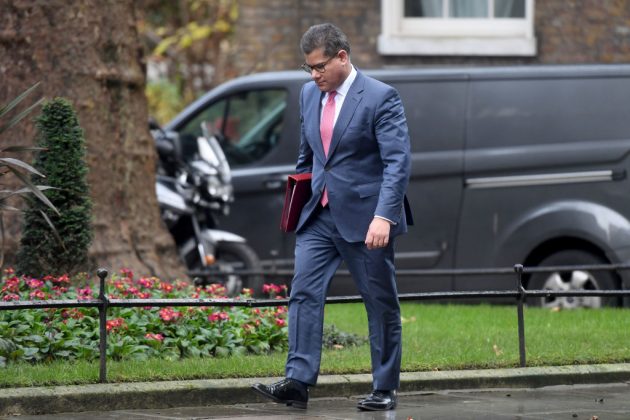Ahead of COP26, what’s on industry leaders’ climate change wishlists this year?

At the moment, it’s hard to think beyond the next six weeks, but 2021 is set to be a huge year for climate action around the world.
Front and centre is November’s COP26 conference, which will see the world’s leaders descend on Glasgow for the latest round of the United Nations’ ongoing climate change negotiations.
This year’s talks are crucial, as countries will be required to update their “nationally determined contributions” for reducing greenhouse gas emissions for the first time since the Paris conference in 2015.
After a year in which climate change took the back seat due to the pandemic the issue is likely to be at the return to the forefront of government concerns.
So what’s on industry leaders’ wishlists for the coming year?
The 10 point plan – time to start delivering?
Boris Johnson’s government unveiled a flurry of climate announcements at the end of last year, including the PM’s much-touted “10 point” climate plan and the long-awaited Energy White Paper.
But amid all the talk of “building back better”, the challenge this year will be to start putting it into action, says Emma Pinchbeck, chief executive of trade body EnergyUK:
“First, we should focus on delivery of the White Paper and 10 Point Plan: and, as always, focusing on the stuff which is hard and which we haven’t cracked on with like making our homes cleaner and warmer – even more important as we’re spending so much time in them.”
Ted Christie-Miller of think tank Onward agrees: “There’s a couple of government reports due out imminently that will hopefully put some flesh on the bones of December’s Energy White Paper, but the Net Zero Treasury review will be especially important in laying out the cost of the energy transition.”
The other priority, says Pinchbeck, should be drawing on the UK’s strengths to deliver a successful COP26 conference.

“Globally, the UK is recognised for our strengths in clean electricity, carbon pricing, and green finance – so perhaps government might want to redouble its efforts on these in the run up to COP26.”
A power revolution?
Renewable energy challenger brand Octopus’ chief executive Greg Jackson is pushing for a shift in how we pay for our power.
“One thing it would be great to see this year is a shift in the way that we charge for our electricity”, he told City AM.
“Electricity is currently subject to three times the taxation that gas is, and the reality is that unless we move these wrongheaded charges onto carbon-heavy fuels it will be hard for renewables to compete as much as they should. On a similar note, we need to get rid of fixed charges on electricity, and move to an off-peak charging system instead.
“Finally, last year felt like the year that plant-based meat products finally hit the mainstream. The widespread adoption of “fake” meats really would be a game-changer for the climate.”
The carbon taxman cometh?
Eamonn Ives, a researcher at think-tank the Centre for Policy Studies, said it could be time for the rollout of a carbon tax.
Before the Open: Get the jump on the markets with our early morning newsletter
“Towards the end of last year, a trickle of stories suggested Rishi Sunak was planning to unveil a carbon tax ahead of COP26. If true, that could be a game changer in the fight against climate change.
“Economists and environmentalists alike appreciate that putting a price on carbon is perhaps the most effective thing governments can do to drive emissions down. Its introduction should be coupled with a reduction in growth damaging taxes and mandates to give the economy the best shot at rebounding after the Covid-19 recession.”
“The Transport Select Committee will also be concluding its inquiry into road pricing. Again, this is something the Government should be throwing its full weight behind.
“Applying market signals to road use has been proven to tackle congestion, and would make greener transport alternatives much more attractive options. Road pricing would be a boon for economic growth, but also the climate and air quality too.”
Harnessing the wind (and the sun, and the tide):
Wind power was at the heart of Johnson’s 10 point plan, with 40 gigawatts of installed capacity now the goal for 2030.
Trade body Renewables UK is working closely with the government on getting the right policy framework in place to hit – and even beat – that target.
Deputy chief exec Melanie Onn told City A.M.: “Upgrading port facilities around the UK so they can cope with the scale of the new mega-turbines we’re installing offshore will be key.
“Another important measures we’re calling for is proper financial resourcing by government for its environmental advisory bodies like Natural England so that they can contribute to the decision-making process on future offshore wind projects in a more timely manner.”
Wind alone will not be enough to hit the UK’s 2050 net zero target, but Renewables UK is also pushing hard for a full range of other technologies.
“We’re also calling for measures to ensure that innovative technologies like wave and tidal energy to reach full commercialisation”, says Onn.
“The Government has said it will be looking closely this year at the role marine energy can play, so we’re helping them to look at the commercial and technical evidence on how we can make the most of the UK’s massive marine energy potential.”
Christie-Miller is also pushing for an increased focus on so-called nature-based solutions, such as developing regulations for carbon offsetting.
“This market is set for enormous growth over the next 30 years and regulation is urgently, urgently needed if it is to be an effective tool for restoring biodiversity in the UK.”